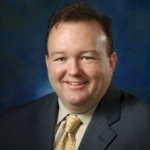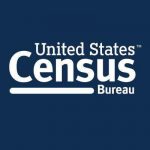When the Ends Don’t Meet: The Economic Survival Strategies of African American Grandmothers Raising Their Grandchildren
When: Friday, May 1, 2020 (12:30 - 1:30PM)
Where: Virtual via Zoom (Register with this link)
This Friday, CSDE Affiliate LaShawnDa Pittman from the UW Department of American Ethnic Studies will present research on the economic survival strategies of African American grandmothers who raise their grandchildren in skipped-generation households (SGHs). In her research, Pittman has collected qualitative data from African American grandmothers raising grandchildren to reveal how and why women in non-normative families, lacking legal protections and publicly recognized authority as parents, must negotiate risk in pursuit of resources. Ultimately, through her research, Pittman illustrates how the severe deprivation experienced by these grandmothers is exacerbated by their exclusion from safety net programs that could help them support the children in their care.
(read more)
|
 |
|
|
Congratulations to Zack Almquist on NSF RAPID Award for COVID-19 Research!
|
One of CSDE’s newest affiliates Zack Almquist and his colleagues were just awarded an NSF RAPID grant titled “Coupled Contagion, Behavior-Change, and the Dynamics of Pro- and Anti-Social Behavior During the COVID-19 Pandemic.” Almquist with colleagues from Stanford, Simon Fraser University, UC-Merced and UC-Davis will pursue a longitudinal study through probability sample of Americans in three waves, assessing risk-reduction behaviors, compliance with public-health mandates, and hypothesized predictors of response including trust in various institutions, social capital, and sources of news and information.
(read more)
|
 |
Alexes Harris Comments on Criminalization of Poverty for The Appeal’s Political Report
|
Virginia, among other states, is considering criminal justice reforms amidst the Covid-19 pandemic. One of these reforms concerns the practice of suspending driver’s licenses over court debt. Therefore, CSDE Affiliate Alexes Harris provided her expertise on the effects of such reforms and the criminalization of poverty in a recent article for The Appeal’s Political Report. Harris explains how “if someone is unemployed, or underemployed, unsheltered, or has a family, regularly paying fines and fees, much less paying them off, is extremely difficult." Further, adding the burden of a driver's license suspension can exacerbate the consequences of constant debt collection.
(read more)
|
 |
Mark Long Examines Long-Term Effects of Affirmative Action Bans in New Study
|
In a new study titled “Long-Run Changes in Underrepresentation After Affirmative Action Bans in Public Universities” published in Educational Evaluation and Policy Analysis (EEPA), CSDE Affiliate Mark Long and Nicole Bateman demonstrate the consequences of states’ affirmative action bans on racial compositions in universities. Through multiple analyses, Long and Bateman find that in states that have banned affirmative action, the share of underrepresented minorities among students admitted to and enrolling in public universities has lost ground relative to changing demographic trends among high school graduates. Their results imply that alternative policies were unable to fully replace race-based affirmative action.
(read more)
|
 |
Request for Insights and Input from UW Faculty and Staff about Research Experiences during COVID-19 Pandemic
|
Nicole Errett, CSDE Affiliate, is seeking insights about disaster research responses during the COVID-19 pandemic. In 2021, the University of Washington will be the site of the next National Institute of Environmental Health Sciences Disaster Research Response Workshop. This workshop aims to enhance capacity to conduct disaster research response at UW and across the federally funded research enterprise. They are hoping to learn from UW faculty and staff about their COVID-19 research experience to improve tools and processes to enhance disaster research response as part of our workshop activities. Their survey can be found here. They are requesting surveys be completed by next Monday, May 4.
(read more)
|
 |
*NEW* Census Bureau Rolls Out Household Pulse Survey During COVID-19 Pandemic
|
The US Census Bureau has received emergency approval from OMB to email/text an online survey link to 13.8M homes over 12 weeks to measure employment, spending, food/housing security, education disruptions, physical/mental wellbeing during COVID-19 pandemic […] Some 13.8 million people in the U.S. may start receiving an official Census Bureau email or text like this about the new “Household Pulse Survey” as early as April 20, 2020. Documents are available here.
(read more)
|
 |
*NEW* NICHD Joins RFA Call for COVID-19 Administrative Supplements
|
If you have a current NICHD grant you may apply for an administrative supplement to address COVID-19 impacts on vulnerable populations. NICHD has particular interests in COVID-19-related research on vulnerable populations falling within the NICHD scientific mission area, including pregnant and post-partum women, infants, children, and adolescents; individuals with physical and/or intellectual disabilities; and children who are homeless or in foster care.
(read more)
|
 |
|
|

